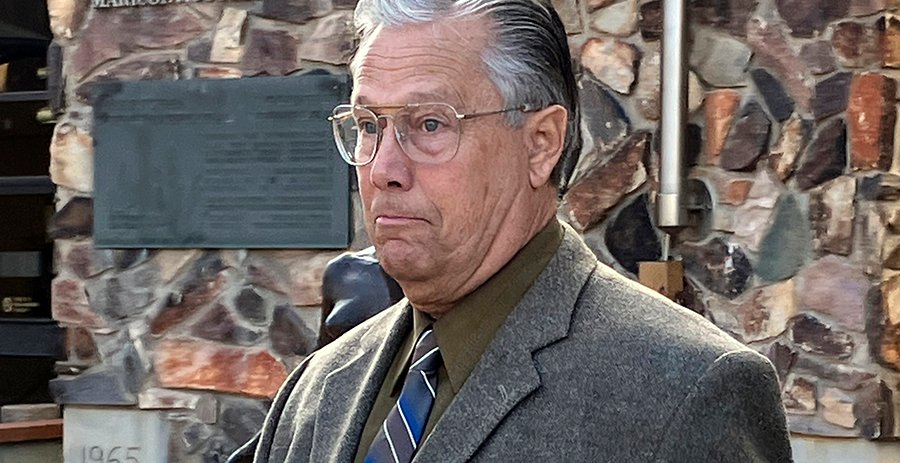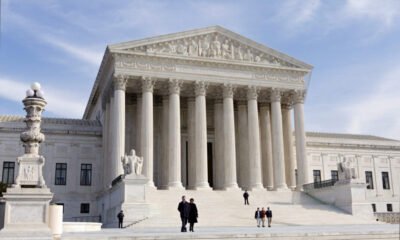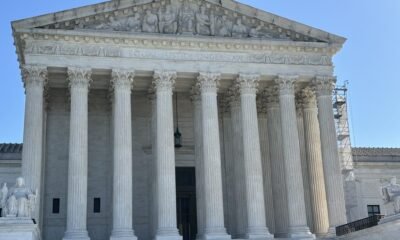courts
Cochise County Supervisor’s Appeal Denied: Plans Supreme Court Challenge

Cochise County Supervisor Tom Crosby will face trial on charges of election interference and conspiracy following a ruling from the state Court of Appeals on Tuesday. The court’s unanimous decision affirms that Crosby’s refusal to certify the 2022 election results is subject to legal scrutiny.
Judge Paul McMurdie, in his statement, recognized that elected officials possess a degree of “legislative immunity” for their votes. However, he clarified that the official “canvass” of the vote constitutes an administrative duty with no room for discretion. As a result, Crosby’s claim of immunity was insufficient to protect him from prosecution.
The appellate judges dismissed Crosby’s argument that his actions did not impede the secretary of state’s responsibilities related to the election results. Ultimately, while other board members certified the results by December 1, 2022, after judicial intervention, the delay may still have obstructed Secretary of State Katie Hobbs’ ability to fulfill her duties effectively.
This ruling is not expected to be the final chapter. Attorney Dennis Wilenchik intends to appeal to the Supreme Court for further examination of the case.
Crosby’s legal troubles stand apart from those of his colleagues. Peggy Judd, a fellow Republican, entered a guilty plea to a misdemeanor charge in October for failing to perform her obligations as an elected official, resulting in a $500 fine and probation. In contrast, Democrat Ann English did not face any charges, as she was the only supervisor to initially seek the certification of the election results.
The controversy surrounding Crosby began prior to the 2022 election, when board members considered a hand count of ballots. A judge prohibited this action, but Crosby and Judd filed a lawsuit against county Elections Director Lisa Marra to proceed with it. That lawsuit was ultimately dismissed.
The board failed to meet the state-mandated certification deadline of November 28, 2022, opting instead to delay the process amid concerns regarding the certification of voting machines. This decision was opposed by English, who argued that the board possessed all necessary information and certification was an obligatory duty.
A court order compelled the board to certify the results, with Judd and English voting in favor, while Crosby skipped the emergency session. Subsequently, Attorney General Kris Mayes secured a grand jury indictment against both Crosby and Judd late last year.
Wilenchik has characterized the indictment as retaliatory, claiming it stemmed from the supervisors’ insistence on obtaining clarification before certifying the election results. He argued that the charges were based on an overly broad interpretation of the law.
Judge Geoffrey Fish from Maricopa County Superior Court dismissed these arguments, allowing the case to proceed to the Court of Appeals. The appellate court emphasized that while legislative immunity generally exists, it does not apply when the action in question does not involve traditional legislative discretion.
McMurdie underscored that Crosby’s responsibility to canvass the election results was mandatory and not discretionary. The law dictates that supervisors must meet and canvass within a specified timeframe post-election, absent missing results.
Crosby claimed his actions were in service of his constituents, but the evidence revealed he had no prior knowledge of any issues warranting a postponement of certification. Wilenchik argued that the state certification was unaffected by the board’s actions, leading to claims of no interference.
The Court of Appeals, however, maintained that canvassing results is not a legislative action; it is a straightforward implementation of policy and law. McMurdie articulated that the process involves simple calculations rather than discretionary policymaking, reinforcing the obligation of the supervisors to comply with statutory guidelines and court orders.


















